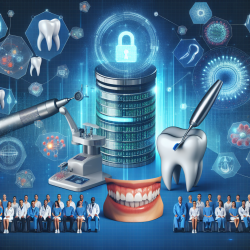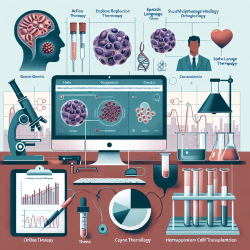The field of dentistry is on the brink of a revolutionary transformation thanks to the integration of big data analytics. The research article "Using Big Data to Promote Precision Oral Health in the Context of a Learning Healthcare System" by Finkelstein et al. sheds light on how dental practitioners can leverage big data to enhance precision in oral health care. This blog explores key insights from the research and provides actionable steps for practitioners looking to improve their skills and patient outcomes.
The Power of Big Data in Dentistry
Big data refers to the vast volumes of data generated from various sources, including patient records, clinical trials, biological databases, and more. In dentistry, big data can be harnessed to identify patterns, predict outcomes, and personalize treatment plans. The research highlights four major streams of data that are crucial for analysis:
- Patient Data: Information gathered from individual patient interactions, including demographics, medical history, and treatment outcomes.
- Clinical Data: Data collected during routine dental check-ups and procedures.
- Biological Data: Genetic and biomarker information that can influence oral health.
- Normative Data Sets: Standardized data used for benchmarking and comparison across populations.
Implementing Big Data in Dental Practice
The integration of big data into dental practice involves several steps. Practitioners can start by adopting electronic health records (EHRs) that facilitate easy data collection and analysis. Here are some strategies to implement big data effectively:
- Data Capture Cycles: Regularly update patient records with comprehensive information to ensure a robust dataset for analysis.
- Integrative Informatics Approaches: Use advanced software tools to integrate and analyze diverse datasets for meaningful insights.
- Learning Health Systems: Create a feedback loop where findings from data analysis inform clinical practices and improve patient care continuously.
The Benefits of Precision Oral Health
The ultimate goal of utilizing big data in dentistry is to achieve precision oral health. This approach offers numerous benefits:
- Personalized Treatment Plans: Tailor treatments based on individual patient profiles for better outcomes.
- Improved Patient Outcomes: Use predictive analytics to anticipate potential issues and intervene early.
- Enhanced Public Health Strategies: Identify trends at the population level to inform public health policies and initiatives.
The Future of Dental Practice
The integration of big data into dentistry is not without challenges. Practitioners must overcome barriers such as data privacy concerns, the need for specialized training, and the integration of new technologies into existing workflows. However, the potential benefits far outweigh these challenges.
Dentists who embrace big data analytics will be at the forefront of a new era in oral health care. By leveraging insights from large datasets, they can provide more accurate diagnoses, develop effective treatment plans, and ultimately improve patient satisfaction and health outcomes.
If you're a dental practitioner looking to enhance your skills or explore further research opportunities, consider diving deeper into this transformative field. The original research paper provides a comprehensive overview of how big data can be utilized in dentistry.
To read the original research paper, please follow this link: Using big data to promote precision oral health in the context of a learning healthcare system.










